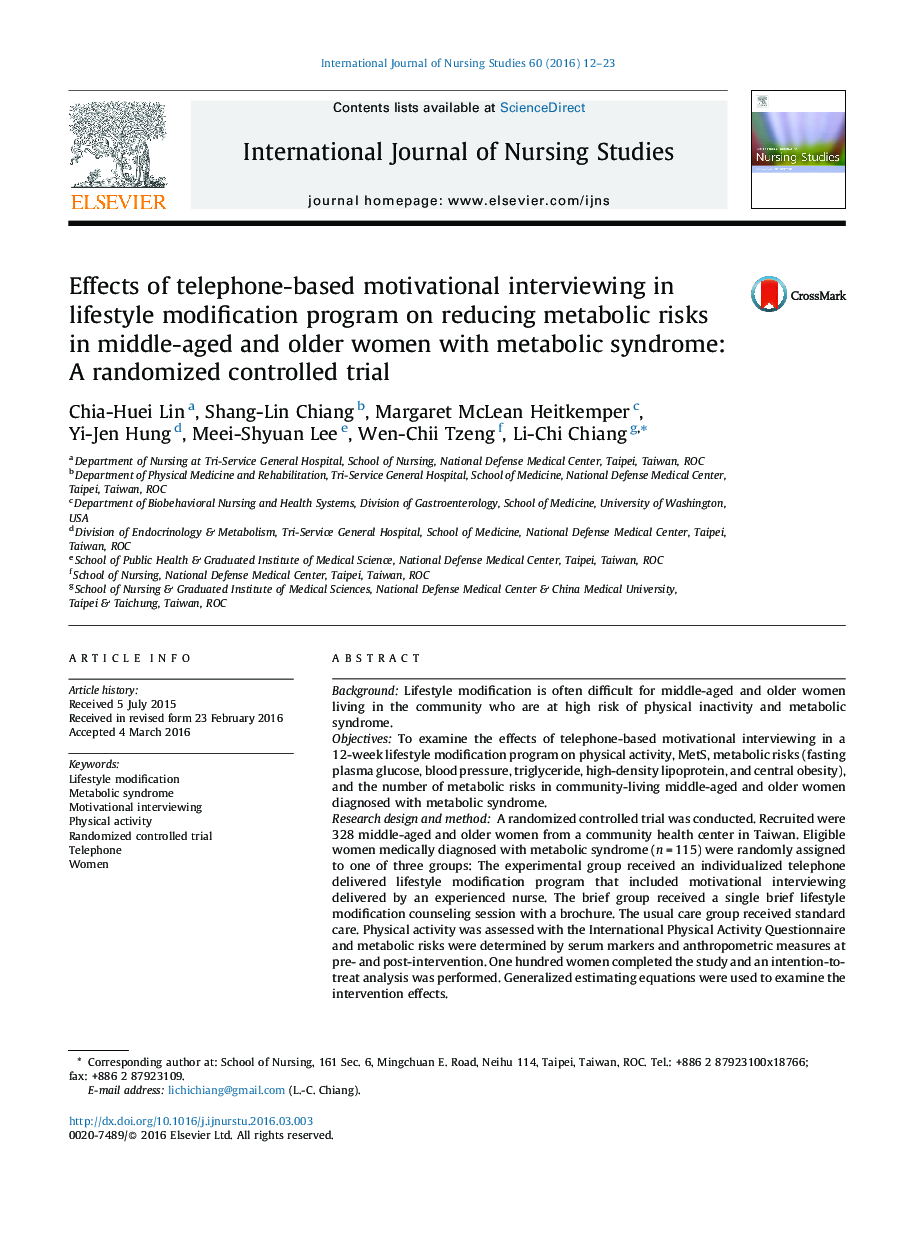| Article ID | Journal | Published Year | Pages | File Type |
|---|---|---|---|---|
| 1075958 | International Journal of Nursing Studies | 2016 | 12 Pages |
BackgroundLifestyle modification is often difficult for middle-aged and older women living in the community who are at high risk of physical inactivity and metabolic syndrome.ObjectivesTo examine the effects of telephone-based motivational interviewing in a 12-week lifestyle modification program on physical activity, MetS, metabolic risks (fasting plasma glucose, blood pressure, triglyceride, high-density lipoprotein, and central obesity), and the number of metabolic risks in community-living middle-aged and older women diagnosed with metabolic syndrome.Research design and methodA randomized controlled trial was conducted. Recruited were 328 middle-aged and older women from a community health center in Taiwan. Eligible women medically diagnosed with metabolic syndrome (n = 115) were randomly assigned to one of three groups: The experimental group received an individualized telephone delivered lifestyle modification program that included motivational interviewing delivered by an experienced nurse. The brief group received a single brief lifestyle modification counseling session with a brochure. The usual care group received standard care. Physical activity was assessed with the International Physical Activity Questionnaire and metabolic risks were determined by serum markers and anthropometric measures at pre- and post-intervention. One hundred women completed the study and an intention-to-treat analysis was performed. Generalized estimating equations were used to examine the intervention effects.ResultsWomen in the experimental group increased physical activity from 1609 to 1892 MET-min/week (β = 846, p = .01), reduced the percentage of diagnosed with metabolic syndrome to 81.6% (β = −0.17, p = .003), and decreased the number of metabolic risks from 4.0 to 3.6 (β = −0.50, p < .001), compared to the usual care group (4.4–4.6). There was not a reduction in the percentage of diagnosed with metabolic syndrome in the brief group, but they had fewer metabolic risks after 12 weeks (mean = 4.0 vs. 4.6, β = −0.2, p = .02) compared to the usual care group.ConclusionsMotivational interviewing as a component of an individualized physical activity and lifestyle modification program has positive benefit in reducing metabolic risks in middle-aged and older women.
